Food isn’t just sustenance. It’s a vehicle for heritage, culture, and memory, and a fascinating lens through which to examine world history. Culinary history books examine every aspect of gastronomy, from the development of table manners and eating utensils to the beliefs, practices, and cultural shifts that influenced the mouthwatering dishes you know and love today. The following books reveal the rich history behind various cuisines the world over.

The Rituals of Dinner
A New York Times Notable Book, The Rituals of Dinner has a different take on culinary history: rather than focusing on the cuisine itself, it examines the customs surrounding the act of eating. From the development of the fork and chopsticks to table manners throughout history, The Rituals of Dinner is a fascinating look at the ways in which humans have transformed a biological necessity into a cultural phenomenon. As The New York Times Book Review aptly put it, “Read it, because you’ll never look at a table knife the same way again.”
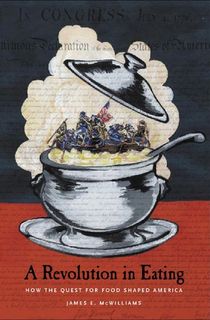
A Revolution in Eating
You're surely familiar with the story of the first Thanksgiving, but the culinary traditions of early colonial America are generally shrouded in mystery. James E. McWilliams cuts through the noise with this insightful book focused on the culinary attitudes, tastes, and techniques of the European settlers who found themselves surrounded by unfamiliar plants and animals in the New World. McWilliams shows how British traditions, Native American interactions, and a growing sense of a uniquely American identity eventually merged together into the traditions we know today.
Related: 7 Fascinating Books About the Pilgrims, from Mayflower to Plymouth and Beyond
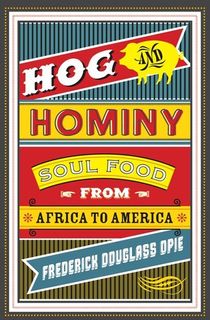
Hog and Hominy
Collard greens, grits, and fried fish—these dishes and many more are emblematic of mouth-watering African American culinary traditions. Using travel accounts, periodicals, government reports, and interviews with more than 30 people born before 1945, Frederick Douglass Opie traces the complex origins of soul food back to the enslavement of West and Central Africans in the Americas all the way through the Great Migration and the Civil Rights Movement. The result is an eye-opening look at “true soul in the food of the South, including its place in the politics of black America” (NPR.org).
Related: Illuminating Books About the History of Race in America
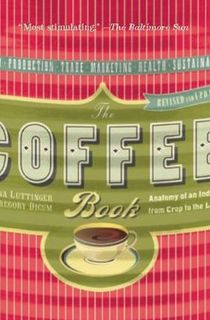
The Coffee Book
You might be a daily coffee drinker, but how much do you know about the history behind the beverage? The Coffee Book delves into the origins and development of the drink, from its first use in 6th-century Ethiopia to the rise of ubiquitous brands like Starbucks. Along the way, the book explores the environmental and economic impact of coffee, as well as its cultural significance around the globe. No wonder reviews called The Coffee Book “stimulating” (The Baltimore Sun) and “good to the last sentence” (Las Cruces).
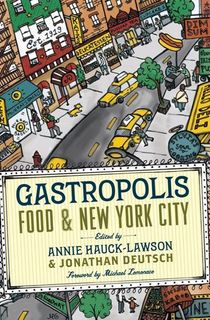
Gastropolis
From Jamaican jerk chicken to soup dumplings to cherry cheesecake, this account traverses the five boroughs in search of fare that is at once global and unique to New York City. A sweeping account of the dishes that have emerged from the city's mingling of cultures, Gastropolis is a flavorful journey and a culinary adventure unlike any other.
Related: 9 Coffee Table Books Filled with Stunning Historical Photographs
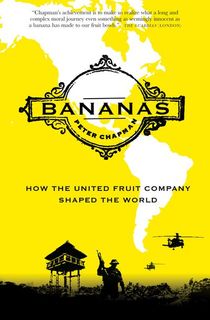
Bananas
Financial Times writer Peter Chapman exposes “what a long and complex moral journey even something as seemingly innocent as a banana has made to our fruit bowls” (The Guardian). Narrowing his focus to the United Fruit Company, Chapman reveals how the controversial business has had ties to an invasion of Honduras, a massacre in Colombia, and a bloody coup in Guatemala—all for the sake of marketing and selling the banana. Politics, economics, and culinary history collide in this damning exposé that sheds light on the exploitative nature of the global food trade.
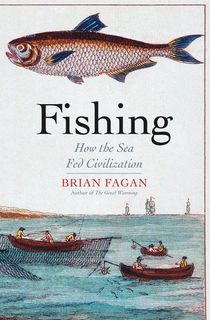
Fishing
Fish do the heavy lifting in the diets of many coastal people. But fishing is more than a sport or a way for families to put food on the table; the practice also had a huge impact on the development of civilization. Archaeologist Brian Fagan examines how fishing sustainably fed entire cities, nations, and empires, encouraged seafaring exploration, and ultimately changed the face of the modern world.
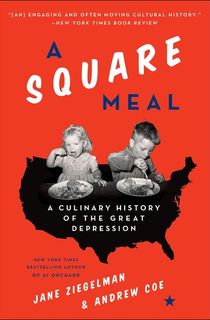
A Square Meal
The Great Depression resulted in large-scale food insecurity, as millions of Americans found it increasingly difficult to feed their families. The Bureau of Home Economics, a division of the U.S Department of Agriculture, tackled the issue by disseminating information about cheap, nutritious ingredients and how to use them. For the first time, Americans were made aware of dietary guidelines and nutrients like Vitamins A, B, and C. As this fascinating book reveals, the crippling economic crisis led to insights about the science of food and ultimately heralded a change in how America eats.
